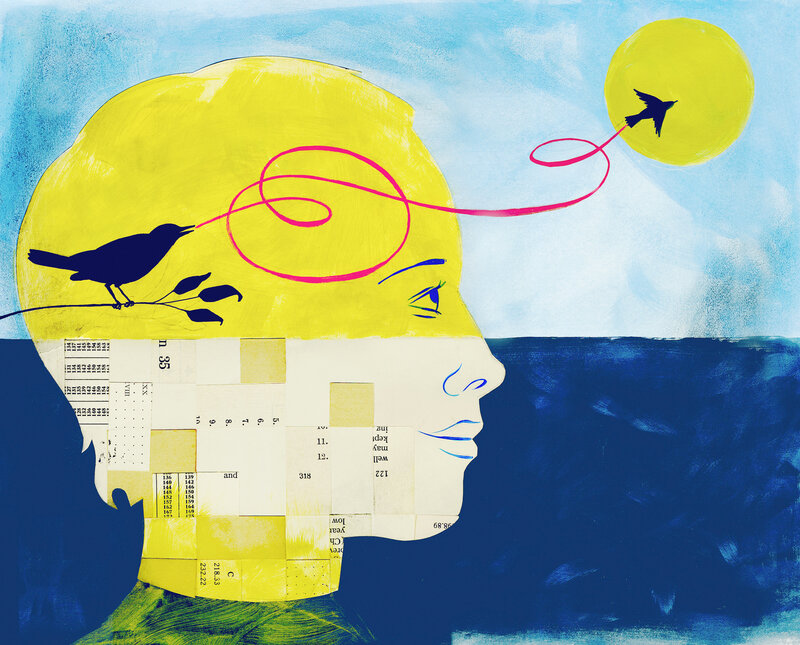posted by Chuck Schallhorn
How Dark were The Dark Ages?
3 days ago
A resource for any teacher of high school psychology, whether AP, IB or Introduction to Psychology

 NPR has delivered another great author interview with a psychologist who has written a book about the teenage brain. Dr. Frances Jensen has updated research in the book, The Teenage Brain: A Neuroscientist's Survival Guide to Raising Adolescents and Young Adults.
NPR has delivered another great author interview with a psychologist who has written a book about the teenage brain. Dr. Frances Jensen has updated research in the book, The Teenage Brain: A Neuroscientist's Survival Guide to Raising Adolescents and Young Adults.|
Follow ALL
Directions:
·
Today's exercise is designed to take your through
some excellent sites about the brain and help you review and understand the
ideas for the unit.
·
Complete each section before moving on to the next
one.
·
Go to my
web site to access all these specific sites without having to type in each
link.
|
Site 1: The Teenage Brain: Why We Sleep
|
|
Site 2: The Brain in 3-D Form-- http://www.g2conline.org/
--once here, look to the right and view the 3-D brain section
This link shows the brain in
3-Dimensional form.
Play with the simulation to
get a feel for the brain and how parts relate to one another. Do this and read the descriptions at the
right of the page. Spend about five
minutes doing this. Name three things
you learned about the brain by using this tool.
1.
2.
3.
|
|
This
link explains in detail and great color just how science can scan the brain. What
does each do and HOW does it achieve its measurement of the brain.
|
||||||
Site 4: Brains in the News--http://faculty.washington.edu/chudler/inthenews.html
Neuroscience
for Kids--in the News
Choose
one of the articles and give a four-six sentence summary of its contents.
|
Site 5: Brain Games
Neuroscience
for Kids--Neuroscience Games
Choose
a game that is for kids in high school. Play it and report back as to what
you learned from it.
|
Site 6: Topic of Your Choice
Scan
the article titles on this page. Make a list of topics (at least 8x) the magazine is currently
offering.
|
|
Site 7: Medical News
Today Article—Search this site for articles dealing with the
brain (easy search box at the top).
Choose and article. Choose one and create a mini-report (summarize in
4-6 sentences on the article topics about which you read). http://www.medicalnewstoday.com/
|
|
Site 8: Sheep Brain Dissection
This link takes you through
the dissection of a sheep brain and the connection to that of a human
brain. Please take key notes (at least
8) that are important to understand the brain.
|
|
Site 9: Society for Neuroscience: http://www.sfn.org/index.aspx?pagename=brainfacts
Take a look at the
page. Choose one of the topics under
“main page.” Read that section and
summarize it here.
|
|
Optical Illusions Sites
Go
to the following links and experience the world of optical illusions. What do
you see—what illusions grab your attention and why
1.
2.
3.
What is happening to you
when you view these illusions? What is
your reaction to it?
|
 We've highlighted the Genes to Cognition website before, but one of their most interested and fun segments has been made into a phone/tablet app.
We've highlighted the Genes to Cognition website before, but one of their most interested and fun segments has been made into a phone/tablet app.| The Colbert Report | Mon - Thurs 11:30pm / 10:30c | |||
| David Eagleman | ||||
| www.colbertnation.com | ||||
| ||||
 Believe it or not, the National Geographic has part of their website devoted to the human body. I (Kent) will leave the sections on the digestive system, heart, skin and lungs to our colleagues in biology and concentrate on the section devoted to the brain. Go to http://science.nationalgeographic.com/science/health-and-human-body/human-body/brain-article.html for more information.
Believe it or not, the National Geographic has part of their website devoted to the human body. I (Kent) will leave the sections on the digestive system, heart, skin and lungs to our colleagues in biology and concentrate on the section devoted to the brain. Go to http://science.nationalgeographic.com/science/health-and-human-body/human-body/brain-article.html for more information.